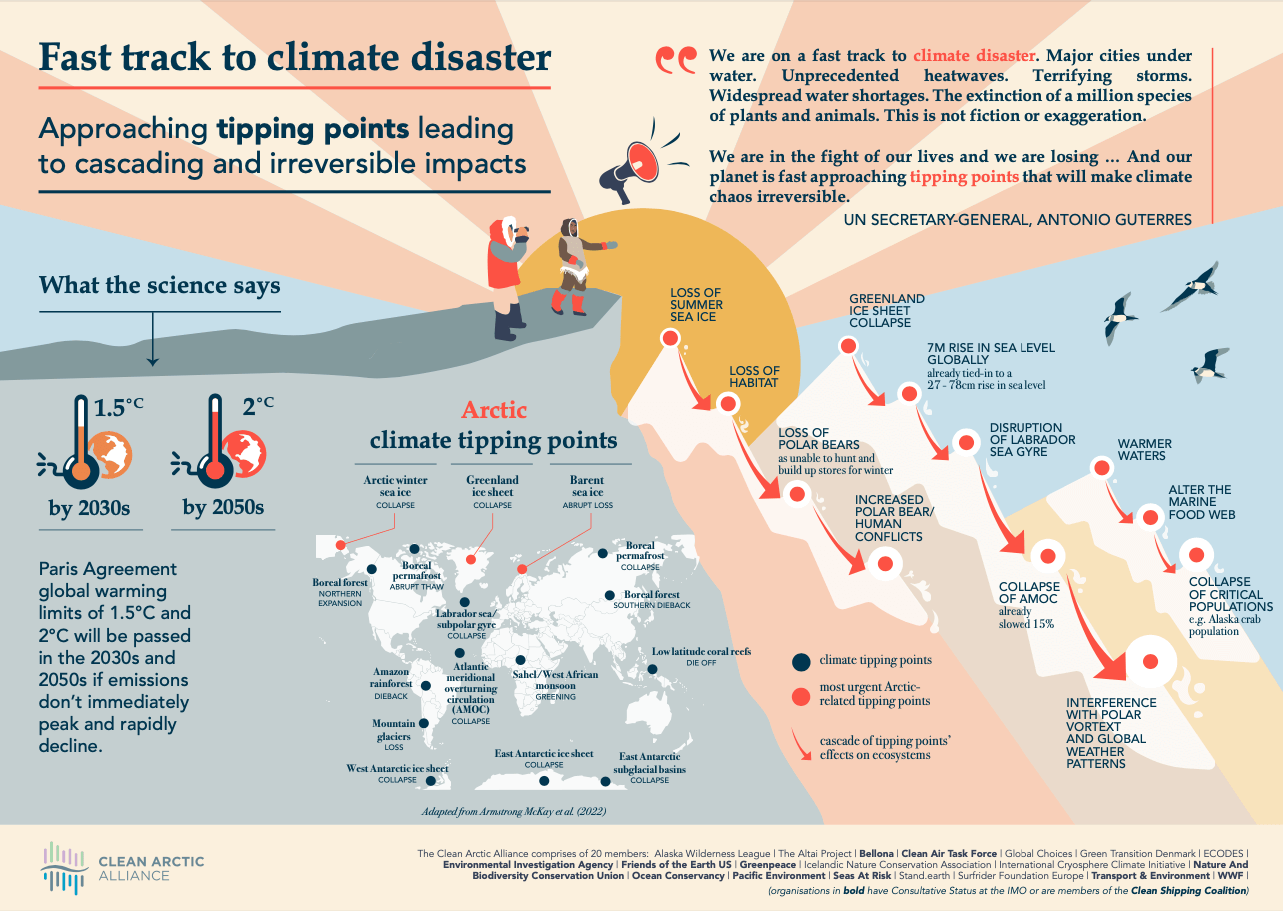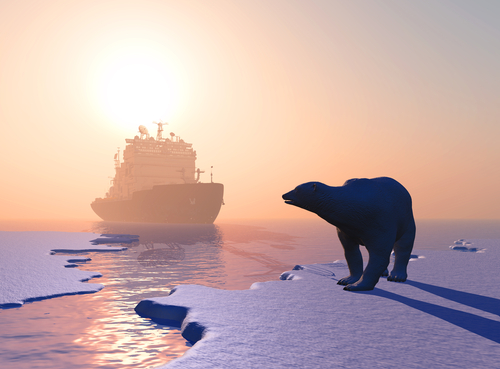Following a challenging UNFCCC Conference of Parties (COP29) and to mark the UN’s World Sustainable Transport Day, the Clean Arctic Alliance called on Arctic shipping operators and the UN’s International Maritime Organization Arctic member states to prioritise the protection of the Arctic from the multiple impacts of shipping transport.
The Clean Arctic Alliance on its statement highlights the need to protect the Arctic from the impacts of shipping transport by moving to cleaner marine fuels, establishing emission control areas to reduce air pollution and banning the use of scrubbers. Moreover, reducing the impact of ships operating in and near to the Arctic is not difficult – it does not require the development of new fuels or new technology, and can be done with immediate effect.
The Clean Arctic Alliance is calling on the international shipping community to put in place three key actions to address an environmental and existential emergency in the Arctic by:
- Switching away from Heavy Fuel Oil (HFO) to cleaner distillate fuels (e.g. DMA, DMZ) and installing diesel particulate filters (DPF) to reduce black carbon emissions. Black carbon emissions, produced by the incomplete combustion of fossil fuels such as HFO in ship engines, speeds up ice melt when deposited and exposes darker surfaces beneath the snow and ice, accelerating climate change.
- Designating new Emission Control Areas (ECA) in the North Atlantic and the Arctic. An ECA is an International Maritime Organization (IMO) regulatory tool which requires ships to reduce emissions of air pollutants – nitrogen oxides (NOx), sulphur oxides (SOX) and particulate matter including black carbon. New ECAs would provide protection to Arctic coastal communities from shipping emissions detrimental to human and animal health.
- Banning the use of scrubbers in the Arctic. Exhaust Gas Cleaning Systems, known as scrubbers, are used by ship operators to remove sulphur oxides (SOx) which cause human health impacts and acid rain from ships’ engine exhausts. A byproduct of this process is harmful acidic wastewater containing harmful and persistent pollutants which is discharged into the ocean. In the Arctic, this scrubbing process turns air pollution into an Arctic ocean pollution problem.
Dr. Sian Prior, Lead Advisor, Clean Arctic Alliance, stated that unprecedented changes including seasonal sea ice loss, ice sheet melting, permafrost thaw, increasing ocean temperature, and ocean acidification are already occurring in the Arctic at alarming rates, leading to a social and environmental crisis with consequences for Arctic communities, the ecosystem and the whole planet.

Furthermore, Dr. Prior underscored the fact that the Arctic climate crisis is underway and urgent measures need to be adopted to reverse course on these trends. The UN recognises that the best and least costly opportunity to avoid runaway global heating is to act immediately to reduce emissions of short-lived climate pollutants including black carbon and methane.
Practical action is needed now to work towards sustainable global shipping and to urgently reduce shipping climate emissions which impact the Arctic. Until this happens, shipping will never be considered to be a sustainable form of transport.
…said Dr. Sian Prior.
“As the UN marks World Sustainable Transport Day and prepares for its June 2025 Ocean Conference in France next year, these three key actions can make a significant impact in addressing shipping at the nexus of ocean health, pollution reduction and climate action”, said Andrew Dumbrille, North American Advisor to the Clean Arctic Alliance.
There is nowhere on earth that is experiencing the devastating consequences of the triple planetary crises like in the Arctic. Focusing action now in that region is more important than ever.
…said Andrew Dumbrille.





























































